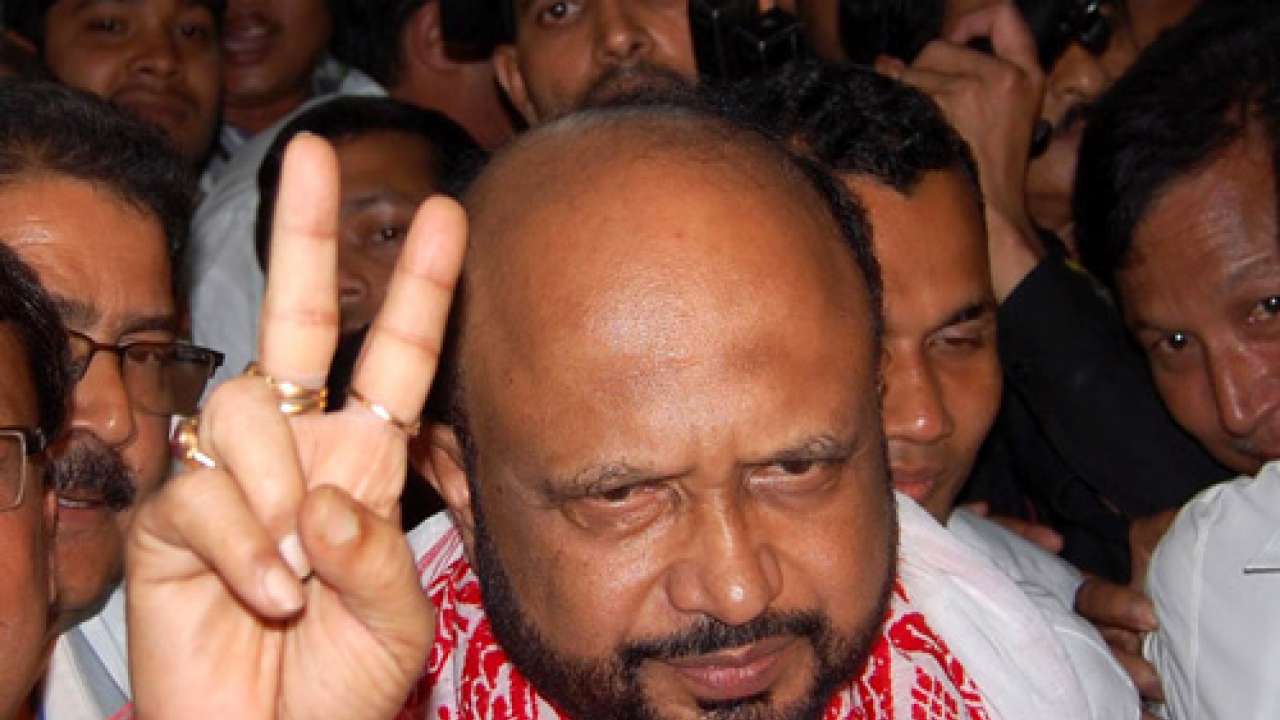
Prafulla Kumar Mahanta, 62, and his party the Asom Gana Parishad (AGP), once considered the frontrunner among the regional political forces in the country, is witnessing its own downfall.
Mahanta burst on the political scene with a dozen young student leaders of the All Assam Students’ Union (AASU) at a time when Assam was in the grip of a widespread anti-foreigner agitation. The 1980s saw a series of bandhs with people on the streets, and their demand was “Assam for the Assamese”. Assam was paralyzed. Finally, the Centre had to give in to the demands, and the historic Assam Accord was signed in 1985.
Such was the support for Mahanta that he created history by being the only person in India to become a chief minister directly from a student leader without any political experience in between. The people of Assam put their faith in his AGP, whose symbol is the elephant. But the fame, the trust and the success all saw a gradual slide.
The AGP miserably failed to meet the expectations of the people of Assam. The state that boasts rich natural resources witnessed a downspin of economy, unemployment was glaring, and government jobs were not paid on time. Adding to it was the horror of the United Liberation Front of Assam (ULFA). A spell of insurgency and counterinsurgency started and the poor people were caught in between.
Assam felt highly let down by Mahanta and his comrades. The Congress returned to power under the leadership of the veteran Hiteshwar Saikia, the man considered instrumental in breaking the back of militancy in Assam. But anti-incumbency was setting in and Assam was still not out of the romanticism of Assamese nationalist politics of the AGP. It favoured Mahanta and his call to strengthen the regional political force. Eventually, Mahanta became chief minister for a second time in 1996, and Assam kept its fingers crossed.
This time, however, the slide was even more deadly. Between 1998 and 2001, Assam witnessed the ugliest chapter of its political history. Violence became the order of the day, unidentified gunmen would knock on the doors of the families of ULFA and former ULFA rebels, and kill them in cold blood by night. These were known as secret killings in Assam. A 2007 inquiry report which was tabled in the state legislative assembly had questioned Mahanta’s role in all this. The people of Assam were frustrated, and in 2001, the Congress was brought back to power under the leadership of Tarun Gogoi.
Every subsequent poll, from civic polls to Lok Sabha, the AGP has only seen decline in the number of seats everywhere. Its only alliance partner, the BJP, rode on its back in Assam, with both the parties contesting polls on their own in 2011. The AGP could only manage to win 10 seats out of 126 in the state legislative assembly. The AGP’s series of electoral failures ensured that anti-Congress votes in Assam became divided.
The AGP’s anti-foreigner plank still remains, as the alleged illegal influx from Bangladesh is still the mainstay of political discourse in the tea rich state. But the AGP’s is the feeblest voice in this discourse. The vacuum created by the AGP’s incompetence to live up to its cause of origin resulted in sharp division of votes in Assam, which has in a way helped the Congress secure more votes beyond its traditional tea worker and Muslim settler vote banks. Perfume baron and minority leader Maulana Badruddin Ajmal and his party, the All India United democratic Front (AIUDF), is now the main opposition and has won the support of the Bengali Muslim settlers in Assam. The BJP has the hardliner Hindu votes as well as a larger section of Assamese voters who still believe in Assamese nationalism since the saffron party became vocal on the illegal Bangladeshi issue, taking away the initiative from the AGP.
This was the time that the AGP should have taken drastic steps, brought new faces at the helm of things. But Mahanta did not give up, even as it sparked dissidence and this call for a change in leadership has just become louder from then on.
Former minister and colleague from the days of the Assam agitation, Atul Bora, left to join the BJP. State BJP president and former MP Sarbananda Sonowal was himself a firebrand leader of the AGP who left the party after the debacle in the 2011 Assembly polls. Apurba Bhattacharjee, former party president Chandramohan Patowary also joined the BJP and is contesting the upcoming Lok Sabha polls on a BJP ticket. Yet Mahanta did not give up, and the two time chief minister of Assam still does not acknowledge the leadership crisis in the party.
Right now, ahead of the Lok Sabha elections, the AGP is a dilapidated party, and Mahanta a vanquished leader. Perhaps his party , which plans to contest all 14 Lok Sabha seats in Assam, might find it very difficult even to hold on to the only seat – Tezpur – that it had last time.
At the fag end of his political career, Mahanta will perhaps be the last man to leave the party or step down as its president. Assam does not rely on Mahanta’s laurels any more. Perhaps it is high time that the leader takes a back seat.
Ratnadip Choudhury is a special correspondent with Tehelka based in Guwahati and writes exclusively on politics of Northeast India. He tweets at @RatnadipC.